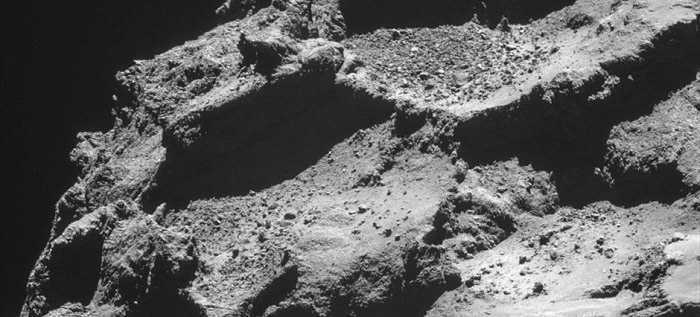Not long ago, in August 2014, its Rosetta spacecraft Europeans Space Service, a comet arrived at 67P / Churyumov-Gerasimenko and came into orbit.
The comet continues to travel along with the spacecraft to the inside of our solar system at a speed of about 33 kilometers per second.

The images and data delivered by the Rosetta spacecraft over the past few months indicate that the 67P / Churyumov-Gerasimenko comet is not an ordinary boulder as it exhibits various geological features.
The comet appears to be overlaid by a black crust that is rich in organic elements. In addition, there are indications of several lakes on the surface of the comet although they are frozen.
The European Space Agency's Rosetta spacecraft never intended to search for any kind of extraterrestrial life on comet 67P / Churyumov-Gerasimenko. However, a group of scientists report that the data and opinions that so far have beams suggest that the alien body could be hiding foreign microorganisms.
In one study published over the weekend, researchers Max Wallis of Cardiff University and Chandra Wickramasinghe of the Buckingham Center for Astrobiology report that the strange appearance of the comet indicates that there is an abundance of microbial life thriving beneath its surface.
Astronomers refer to the jets discovered by Rosetta's detector earlier this year, proving that the comet 67P / Churyumov-Gerasimenko is geophysically active. If the presence of ice, water and organic elements is also taken into account, it becomes clear that the comet could conceal foreign life.
"Rosetta has already shown that the comet should not be considered a deep-frozen inactive body, but it supports geological processes that could be more hospitable to micro-life than in the Arctic and Antarctic," said Max Wallis. from Cardiff University.
If Comet 67P/Churyumov-Gerasimenko really does harbor colonies of alien microorganisms beneath its surface, scientists Max Willis and Chandra Wickramasinghe hypothesize that they must have evolved to produce special antifreeze compounds that allow them to survive subzero temperatures.
It's all that sounds very encouraging and very exciting, but as mentioned, Rosetta was not designed to search for extraterrestrial life. Therefore, Max Willis and Chandra Wickramasinghe make assumptions based on what has been discovered to date in the comet.





